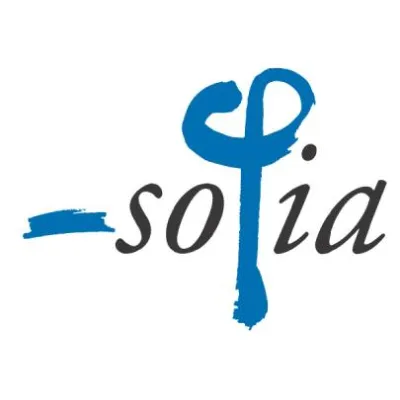Bulgaria

Zozan Tarhan
Zozan Tarhan received her PhD degree in 2022 from the Department of Ancient History, Thracian Studies and Mediaeval History of the Faculty of History at the Sofia University St. Kliment Ohridski with a dissertation entitled Authority and Ideology in the Early Neo-Assyrian Empire (934–745 B.C.). In 2023 she was awarded The best early career scholar of Sofia University St. Kliment Ohridski, Award of Sofia Municipality for an outstanding early career scholar with a doctoral degree. Dr. Tarhan’s research interests are primarily focused in the field of Neo-Assyrian Empire and Assyrian royal ideology, Mesopotamian scholarship, and cuneiform studies. She participates in and supervises ANES projects.
Zozan Tarhan enriched her academic knowledge acquired at the Sofia University St. Kliment Ohridski by means of several academic scholarships. She carried out several specializations in universities abroad: in the field of philology – Ancient Near Eastern Studies / Assyriology at the Department of Ancient Near Eastern Studies of Julius Maximilian University of Würzburg and at the Institute of Assyriology of Ruprecht Karl University of Heidelberg, as well as in the field of archaeology (Archaeology of the Ancient Near East and Classical Archaeology) – at Trakya University in Edirne and University of Warsaw.
Selected publications
- Tarhan, Z., 2025: Authority and Ideology in the Early Neo-Assyrian Empire (934 –745 B.C.). – State Archives of Assyria Studies 35. Helsinki: The Neo-Assyrian Text Corpus Project.
- Schumann, A., Tarhan, Z., Sazonov, V., (eds.) 2024: Ideologies and Encounters of Ideas at the Crossroads of the Ancient World. Special Issue of Studia Antiqua et Archaeologica.
- Tarhan, Z., 2024: From Intention to Accomplishment: Secular and Cultic Feasts Provided by the Neo-Assyrian King. – In: S. de Martino, E. Devecchi and M. Viano (eds): Eating and Drinking in the Ancient Near East. Proceeding of the 67th Rencontre Assyriologique Internationale, Turin, July 12–16 2021. dubsar. Münster: Zaphon, pp. 381–393.
- Tarhan, Z., 2022: The Divination Motif on the Panagyurishte Amphora-Rhyton in Eastern Mediterranean Context. – Archaeologia Bulgarica, 2022, Vol. XXVI, Issue 3, pp. 31–40.
The delegitimisation of foreign rulers plays a central role in Neo-Assyrian propaganda. In Assyrian texts, foreign rulers were characterised as blood-thirsty villains, who even killed their closest relatives, and as treaty-breakers, who ignored the warnings of gods and wise people. Thereby, the Assyrians had to intervene to restore a just world order. Even after defeating their enemies, the Assyrian propaganda continued ridiculing the foreign rulers. While the justification of the expansionistic policy of the Neo-Assyrian Empire (934–745 B.C.) has been studied in detail, no detailed study of the description and delegitimisation of foreign rulers has been conducted so far. The project will study the Neo-Assyrian narratives about and representations of foreign rulers and their authority. The research on Neo-Assyrian strategies of delegitimisation not only contributes to the field of Ancient Near Eastern Studies, but also to the fields of empire studies, political sciences, studies on propaganda, and the current discussion on hybrid warfare.
Ancient Near Eastern Studies; Neo-Assyrian Empire; empire studies; political science; propaganda; hybrid warfare
